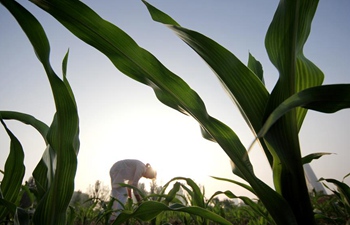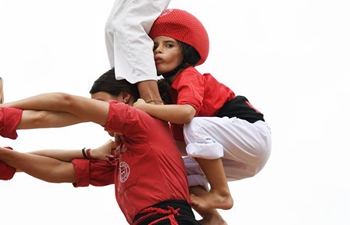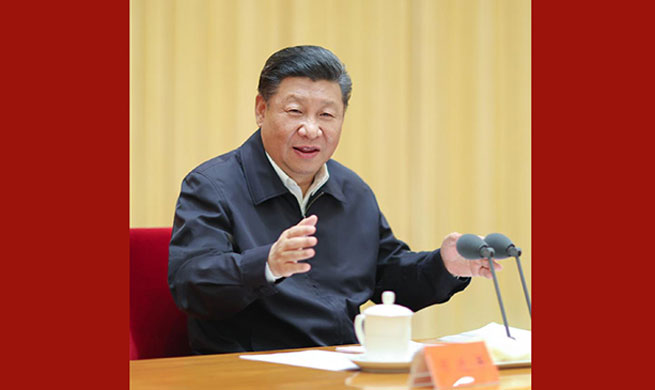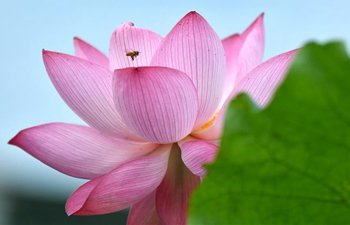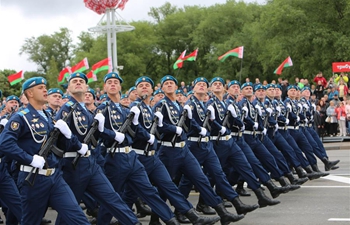URUMQI, July 9 (Xinhua) -- Although not as well-known as American Barbie dolls, Shan Xiumei's handmade dolls are popular in China's northwest Xinjiang Uygur Autonomous Region.
Inspired by Barbie dolls, Shan, a Han woman from Xinjiang, started making the dolls 18 years ago, when the area started to take off as a tourist destination
"My family was very poor when I was young. There were no toys for children, but my mother made a doll for me. I liked it very much and started to make dolls myself from then," Shan said.
To make her dolls unique, Shan invented the craftsmanship of Xiusu, which uses special techniques including embroidery and sculpture.
Like Barbie dolls, the clothing of Xiusu dolls can be changed. But Shan's dolls are purely handcrafted rather than made from molds, and the facial expression of each doll is unique.
To better simulate human skin, Shan adopts special materials and even real make-up for the dolls. The size of Shan's dolls also vary, from as tiny as a finger nail to as big as a real person.
Shan's doll-making business soon boomed, but her original intention for making the dolls was not just as souvenirs to sell and make money.
"It is a cultural product that displays the beauty of Xinjiang. People in Xinjiang are so beautiful that I want to show their beauty to the world through my dolls," she said.
Xinjiang is home to 47 ethnic groups including Han, Kazak, Mongol, Tajik and Uygur.
Shan has been making dolls featuring diverse characters of ethnic minorities in the region. She said she has lived with different people so that she can fully understand them.
"When I want to make a dancing girl, I collect many materials according to not only what skirts they wear, but also what kind of dance they usually preform based on their custom. During the process, I better understand Xinjiang and people living here, as well as their culture," Shan said.
In April, Shan traveled more than 4,000 km and spent more than 10 days meeting hundreds of Kyrgyz people, to complete dolls from the Kyrgyz epic "Manas," which is included in the UNESCO list of masterpieces of intangible cultural heritage of humanity.
"To make perfect dolls, it is necessary to see the real lives of the people instead of pictures in books," she said.
"Cultural products such as Xiusu dolls play a significant role not only in the development of tourism in Xinjiang, but in the cultural communication between China and the rest of world," Shan said.
Around 50,000 Xiusu dolls from Shan's workshop are sold every year.
"Many foreign tourists told us they loved the dolls because they reflected the real lives of the people in Xinjiang," Shan added.
Shan's dolls have been collected by the National Museum of China. In 2014, she was given an award of excellence by the World Crafts Council for her work Macy's Lev, depicting the entertainment activities of the Uygur people.
In 2017, the China National Arts Fund launched a training project to cultivate Xiusu skills. Thirteen trainees out of more than 100 applicants were selected.
"I believe that they will create more diverse Xiusu dolls to show the beauty of Xinjiang to more people," Shan said.






